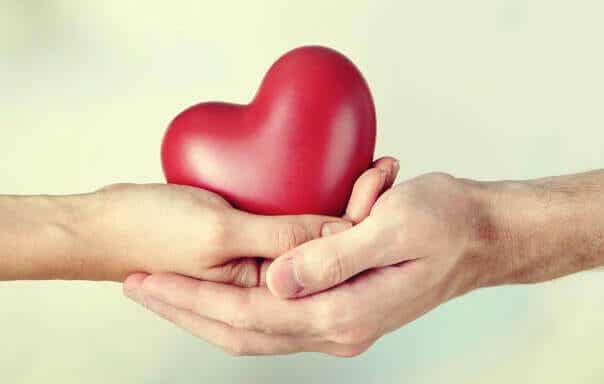
Written and verified by the psychologist GetPersonalGrowth.
Last update: 15 November 2022
In emotional relationships there is rarely a perfect balance between giving and receiving. It is common to see the classic donors and recipients immersed in a power game where only one takes. The recipient obtains energy, vitality and all the affective investment of a donor who is convinced that in love there are no limits, that everything is allowed in affections.
Although the term may seem strange to us, in relational and emotional matters it is common to witness authentic emotional suicides. It is curious to see how a person manages to drive prudently on the street, to pay attention to their diet or to worry about playing sports and leading an active life, but in the emotional sphere they do not think twice about throwing themselves into the void and without a parachute.
In the matter of couples, not everything is valid, it should be remembered. Making your partner your reason for existing and being has serious consequences. Donors and recipients abound in any relationship ties. They are those people who are unable to achieve the right balance between giving and receiving and who fall into the most unhealthy extremes, in which authentic happiness is rarely experienced.
The principle of reciprocity as a key to well-being
Friedrich Nietzsche said that offering a gift does not confer any rights or obligations on the recipient. We might agree with this statement, however, whether we like it or not, there are small "nuances". Gifts are exchanges that involve a certain reciprocity, uniting donors and recipients in many ways.
For example, I can make a material gift to a friend. I don't expect (or want) you to reciprocate. I offer this gift only because I want to honor the affection, support and positivity that this person transmits to me; in other words, reciprocity already exists between us, we are already united by a bond that is represented by a dynamic and energetic balance where we both receive something.
Whether you like it or not, we need this constraint of constant feedback and feedback, where giving and receiving become one, where we are all donors and recipients at the same time. This is so for a very simple reason: the human being is cooperative by nature. In fact, collaborating has allowed us to progress as a species by feeling loved, cared for, valued and even protected. Furthermore, these behaviors give our brain a clear sense of belonging and well-being.
What happens if there is no reciprocity and only I am the "donor"?
The 2010 article When helping helps: autonomous motivation for prosocial behavior and its influence on well-being for the helper and recipient published in the Journal of Personality and Social Psychology highlights some rather curious data.
- Some people are "donors" by nature. In other words, the act of giving is part of their personality and this is how they understand the dynamics of their relationships. Giving (attention, affection, care, importance, etc.) it makes him acquire greater self-esteem and a feeling of positivity, energy and personal dignity.
- In this case, two scenarios can occur. The first is that other people (the recipients) feel pressured and even embarrassed by this lifelong behavior of care, favor, sacrifice. The second is obvious: sooner or later the phenomenon known as "sunk cost" will appear. In other words, the donor may find that many of his actions are not valued or recognized. He will no longer recover all that he has invested, time, affection and energy. He will think it made no sense and it will be a blow to his self-esteem ...
Donors and recipients: two constant figures in our relationships
Anna and Paolo have been together for 8 months. Anna is the "Donor" and does anything for his partner. She pays him constant attention and always cares about him, loves to always be one step ahead and foresee what he may need or like at a given moment. Paul, for his part, "allows himself to be served". Since his partner seems happy by engaging in these behaviors, he has begun to show a more or less passive and even dependent attitude.
It is a small example of what can happen very often in our relationships and how, little by little, donors and recipients take shape. Sometimes, we ourselves put in place a series of dynamics that end up crystallizing in negative situations. Therefore, it is not a question of looking for the guilty ones, but of understanding some things:
- We can allow one of the two to "invest" a little more in the relationship at any given time. However, this does not have to be a model nor the rule. Furthermore, a clear responsibility of both members of the couple is to commit themselves equally in the relationship, where costs and benefits must be similar and fair for both.
- We deserve to receive. Sometimes, you spend so much time as a “donor” that you don't know what it means to be to receive every now and then. The reverse also happens. Those who have spent their entire lives receiving attention and consideration can experience a beautiful feeling of gratitude if they understand the meaning of the act of giving and giving from the bottom of their heart.
To conclude, an interesting aspect to think about about donors and recipients is that we don't even have to obsess with the classic 50/50, in other words, looking for that perfect and millimeter balance of investments and profits in a couple relationship. People have different ways of giving and they do it at different times as well.
The important thing is that there is reciprocity, that the partner is there for us and that what we offer from the heart is received with open arms and reciprocated with the same joy when we need it.


























